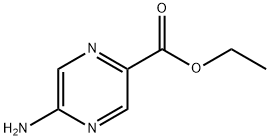I'm really curious about why cancer - induced severe weight loss is irreversible. I've learned that it's related to the MIF - ACKR3 signaling pathway, which disrupts fat generation. But I wonder, are there other factors besides this pathway contributing to this irreversibility? How exactly does MIF - ACKR3 interact with other compounds or molecules in the body? And since MIF levels might be a biomarker, how reliable is it for predicting the severity of cancer - related weight loss? Also, will the new treatments targeting this pathway work for all cancer patients with severe weight loss? I hope to get more insights into this complex issue.
Why Is Cancer - Induced Severe Weight Loss Irreversible?
Related Products More >
-
- 18917-93-8
- CNY equest For Quotation
-
- 18917-93-7
- CNY equest For Quotation
-
- 18917-93-6
- CNY equest For Quotation
-
- 16039-53-7
- CNY equest For Quotation
-
- 16039-53-6
- CNY equest For Quotation
-
- 16039-53-5
- CNY equest For Quotation
-
- 5905-52-4
- CNY equest For Quotation
-
- 5905-52-3
- CNY equest For Quotation



 沪ICP备2021018848号-5
沪ICP备2021018848号-5

As for how MIF - ACKR3 interacts with other compounds or molecules in the body, MIF is a cytokine that can influence various cellular processes. It's likely that it interacts with other signaling molecules, enzymes, and transcription factors within fat stem cells and other cells in the adipose tissue. For example, it might interfere with the normal signaling cascades that promote fat cell differentiation and growth. And ACKR3, as its receptor, could also interact with other ligands in the body, and these interactions might further modulate the effects of the MIF - ACKR3 pathway. But more research is needed to fully map out these interactions.
Regarding the reliability of MIF levels as a biomarker for predicting the severity of cancer - related weight loss, it shows promise, but it's not a sure - fire indicator on its own. While MIF levels can reflect the degree of fat atrophy and the severity of cachexia, it needs to be used in combination with other biomarkers. Cancer is a complex disease, and many factors can affect a patient's condition. So, relying solely on MIF levels might not give the whole picture. Doctors will likely need to consider multiple biomarkers, along with a patient's overall health status and other clinical indicators, to accurately assess the severity of weight loss and cachexia.
Finally, will the new treatments targeting the MIF - ACKR3 pathway work for all cancer patients with severe weight loss? Probably not. Every patient's cancer is unique, with different genetic mutations, tumor microenvironments, and overall health conditions. While the research shows that blocking this pathway in animal models can improve fat tissue pathology, translating these results to human patients might be more challenging. Some patients might have tumors that rely less on the MIF - ACKR3 pathway for causing weight loss, or they might have other underlying issues that could affect the effectiveness of these treatments. However, these new findings do offer hope. In the future, these treatments could potentially be combined with other therapies, like traditional cancer treatments, to better address the complex problem of cancer - induced weight loss and improve patients' quality of life.
How does MIF - ACKR3 interact with other compounds or molecules in the body? MIF is a multifunctional cytokine, and ACKR3 can bind to different ligands. To figure out the specific role of the MIF - ACKR3 pathway, the research team used single - cell RNA sequencing to analyze cells in tumor and adipose tissues. They found the key link between MIF and ACKR3. Through further experiments, they revealed that this pathway specifically damages fat generation. It's like MIF, through ACKR3, gives a "stop - building" command to fat stem cells, preventing new fat cells from being made.
Since MIF levels might be a biomarker, how reliable is it for predicting the severity of cancer - related weight loss? The research team found that MIF levels in patients can reflect the severity of tumor - induced fat atrophy and cachexia. But it's not a one - stop solution. It needs to be combined with other biomarkers for a comprehensive assessment. So, while it's a potential biomarker, it's not 100% reliable on its own.
Will the new treatments targeting this pathway work for all cancer patients with severe weight loss? Probably not. Cancer cachexia is a complex pathological process. There are likely other key factors and pathways involved, like the role of immune cells in the adipose microenvironment. So, while targeting the MIF - ACKR3 pathway is a big step forward, it might not work for every patient. The research team will continue to look for other factors to improve treatment.